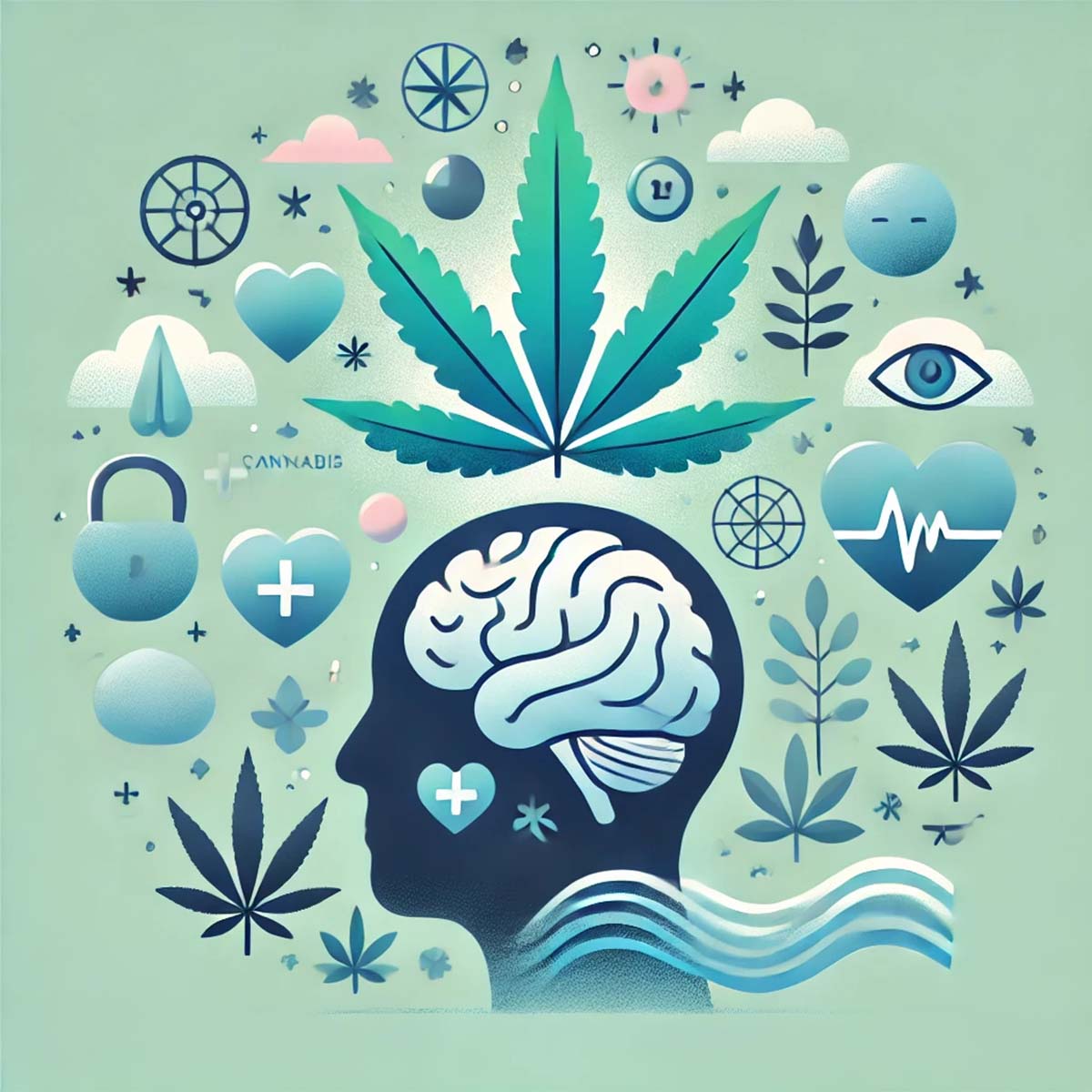The relationship between cannabis and mental health is a subject of increasing interest and discussion. As attitudes and regulations surrounding cannabis evolve, it’s essential to understand how this plant may impact mental well-being. This overview examines the connection between cannabis and mental health, highlighting both the potential benefits and risks.
Cannabis Compounds and the Brain
Cannabis contains a variety of compounds, with two of the most prominent being tetrahydrocannabinol (THC) and cannabidiol (CBD). These compounds interact with the endocannabinoid system (ECS) in the human body.
- THC: THC is the psychoactive component of cannabis and is known for its mood-altering and euphoric effects. It binds to CB1 receptors in the brain and central nervous system, influencing mood, perception, and cognition.
- CBD: CBD is non-psychoactive and is believed to have various potential health benefits, including anxiolytic and anti-inflammatory properties.
Cannabis and Mental Health: The Anecdotal Claims
Many individuals have reported that cannabis may impact their mental health, including:
- Anxiety Relief: CBD-rich strains and products are associated with reducing anxiety and promoting relaxation.
- Mood Enhancement: Some users describe improved mood and a sense of well-being while using cannabis.
- Pain and Stress Management: Cannabis can be effective in alleviating physical pain and reducing stress.
- Sleep Improvement: Certain strains may promote better sleep, which can positively affect mental health.
Cannabis and Mental Health: The Scientific Perspective
Scientific research on the relationship between cannabis and mental health is still evolving, and findings can be complex:
- Anxiety: CBD shows promise in reducing anxiety, but THC, particularly in high doses, can lead to increased anxiety and paranoia.
- Depression: While some users report mood enhancement with cannabis, there is also a risk of cannabis-induced depression, especially with high-THC strains.
- Psychosis and Schizophrenia: Heavy cannabis use, particularly in adolescence, is associated with an increased risk of psychosis and schizophrenia in susceptible individuals.
- Sleep Disorders: Cannabis may help some individuals with sleep disorders, but chronic use can lead to sleep disruption and withdrawal symptoms.
Considerations and Risks
It’s crucial to consider individual variation, dosage, and the specific cannabis strain when exploring its impact on mental health. Some individuals may experience positive effects, while others may face adverse reactions. Important considerations include:
- Addiction: Cannabis use can lead to dependence and addiction, impacting mental health.
- Short-Term vs. Long-Term Effects: While cannabis may offer short-term relief, its long-term effects on mental health require further study.
- Legality and Regulations: The legality of cannabis varies by region, and it is essential to follow local laws and regulations.
- Consult a Healthcare Professional: If you are considering using cannabis for mental health management, consult with a healthcare professional who can provide guidance tailored to your specific needs and circumstances.
Takeaways
The relationship between cannabis and mental health is complex, and while some individuals report benefits, it’s crucial to approach it with caution and responsibility. Research on the subject is ongoing, and individual responses to cannabis can vary widely. When exploring the potential of cannabis in mental health management, consider both the potential benefits and risks to make informed decisions. Working closely with healthcare professionals is essential to create a comprehensive and effective mental health plan.



